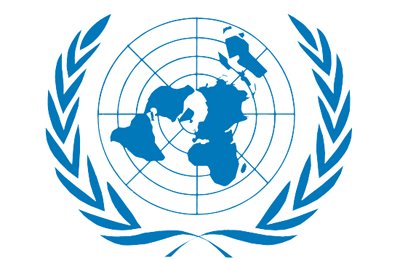HOME >> WORLD
South Korea downplays visit to dsiputed islets
Source:Globaltimes.cn Published: 2012-8-13 17:01:00
| Editor's Note |
South Korea maintained that recent visit by President Lee Myung-Bak to the disputed islets known as Dokdo in South Korean and Takeshima in Japan will not change their fundamental foreign policy toward Japan, Yonhap News Agency reported on August 13.
President spokesman Park Jeong-ha said due to the proximity of South Korea and Japan, as well as extensive economic and trade relationships, South Korea will not keep Japan at a distance, Yonhap News Agency reported on August 13.
The visit of Lee Myung-Bak, South Korean President, to the disputed islets not only exasperated Japan but also triggered off a new round discussion among Chinese public and scholars on whether Beijing should learn from Seoul when dealing with disputed territories in East China Sea and elsewhere.
| Latest News |
South Korea downplays visit to dsiputed islets
South Korea maintained that recent visit by President Lee Myung-Bak to the disputed islets known as Dokdo in South Korean and Takeshima in Japan will not change the fundamental foreign policy toward Japan, Yonhap News Agency reported on August 13.
Japan's government plans to withdraw from a meeting scheduled between Japan and South Korea during the Asia-Pacific Economic Cooperation (APEC) in Russia next month. The withdrawal is to protest the visit of South Korean President Lee Myung-Bak to disputed islets known as Dokdo in South Korean and Takeshima in Japan which both countries claim sovereignty, ribenxinwen.com reported on August 12.
Korea slams Japan plan over disputed islets as imprudentSeoul announced Sunday that Tokyo's plan to settle an issue over disputed islands by taking it to an international court would be "imprudent," after Japan recalled its ambassador one day after South Korean President Lee Myung-Bak visited the islets in the Sea of Japan.
| Int'l Concerns |
 |
South Korea will not accept a move by Japan to internationalize the issue of a set of disputed islets claimed by both Seoul and Tokyo, according to a senior South Korean official. The remarks, made by an unnamed diplomat in a phone call with Seoul's Yonhap News Agency on Saturday, came after the Japanese government said it is considering taking the matter to the International Court of Justice (ICJ). The South Korean official noted that the move by the Japanese side is to "make the Dokdo issue an international dispute", adding that the basic stance of the Seoul government is that it will not accept the move "because Dokdo is clearly our territory", according to Yonhap. Source: Yonhap News Agency |
 Japan |
Japanese Foreign Minister Koichiro Gemba said earlier in the day that his government must respond firmly to territorial issues, adding that he will consider "measures designed to peacefully resolve disputes on the basis of international law, including submitting an application to the ICJ." Source: Xinhua |
 North Korea |
The Committee for the Peaceful Reunification of Korea in the North, South and Overseas countries released an appeal on Sunday to reunify the Korean peninsula, while condemning Japan for their claims on the Dokdo islets, reported the Korean Central News Agency on August 12. Source: Korean Central News Agency |
 United Nations |
UN chief stresses dialogue to resolve territorial disputes United Nations Secretary-General Ban Ki-moon stressed on August 13 the need for dialogue between Seoul and Tokyo to resolve Japan's claim to South Korea's easternmost islets of Dokdo. Source: Yonhap News Agency |
| Comments |
Gao Hong, an expert on Japanese studies from the Chinese Academy of Social Sciences
"Both South Korea and Japan are strong US allies, and this time, how to deal with the two nations will be a touchstone of US diplomatic wisdom."
Many Koreans harbor a long-held resentment toward Japan's colonization, and Lee visited the disputed islands to respond to this sentiment and earn credit for his conservative party, Gao said.
Geng Xin, deputy director of the Tokyo-based Japan-China Communication Institute
Japan's toughness against the Chinese government over land disputes has alerted neighboring countries, forcing those nations to take a hard line on the territorial row against Japan.
Geng said that while China should learn from South Korea in its stance over sovereignty matters, the issue of the Diaoyu Islands in the East China Sea is different.
"As a big power, China has to deal with the details of the issue carefully for the sake of stability in international relations," Geng said.
Source: Global Times
| Media Reports |
 Global Times |
The Global Times (Chinese edition) commented in an editorial Saturday that it seems whichever country controls the disputed territory takes initiative. Focused mainly on domestic politics, the leadership in Russia and South Korea will not concern themselves with whether the Japanese are angry or not, the paper added. Source: Globaltimes.cn |
 The Hong Kong Commercial Daily |
The Hong Kong Commercial Daily analyzed that Lee Myung-Bak's strategy is two-fold; to strike back at Japan's claim over the islets and show the government's adherence to its diplomatic principals while dispelling any negative criticism over the government's recent secretly approved military intelligence exchange agreement with Japan. After taking office, Lee Myung-Bak promised to develop a "future facing" relationship with Japan. However, disputes over history and territory never fade away. Lee and Japanese Prime Minister Yoshihiko Noda have apparent disagreements on history, making equally hard-line claims for the islets. If history is not respected, South Korea-Japan relations will have difficulty moving forward, according to the Xinhua News Agency. Source: Globaltimes.cn |
 Phoenix TV |
Phoenix TV commentator Zheng Hao commented that Lee's statement to visit the disputed islets is inspiring for two reasons. Firstly, South Korea is determined to defend its sovereignty despite fierce opposition from Japan, setting a good example for China. Second, regardless the size of a disputed territory, sovereignty can be claimed at any time as long as one takes the initiative. China needs to push for control of disputed islands to the utmost of its power. If unable to gain full control, China needs to make consistent bids to demonstrate its determination. Source: Globaltimes.cn |
 The Korean Times |
Lee criticizes Japan for lack of efforts to resolve colonial-era issues President Lee Myung-Bak strongly criticized Japan for not doing enough to soothe hard feelings Koreans still harbor over its colonial rule, when he made a landmark visit to South Korea's easternmost islets of Dokdo last week, an official said Monday. |
 The Japan Times |
Isle row with Seoul adds to Tokyo's foreign policy woes The visit threatens to hamper Japan's ties with South Korea and destabilize their tripartite alliance with Washington for denuclearizing North Korea. |
 The Wall Street Journal |
Japan, South Korea Spar Over Islets Mr. Lee raised the stakes of South Korea's criticism with his visit. In doing so, he may have backed Japanese leaders into a corner in which their only way out is to put the claim over the rocks in the hands of an international third party—a move both South Korea and Japan have tried to avoid for fear of losing. |
| Incident Review |
| Time | Japan |
South Korea |
| August 15, 2012 |
As tensions rise over the disputed Dokdo islets, South Korea will unveil a monument on the islets during a ceremony on August 15. Named “Guarding Dokdo’s Iconic Stele”, the unveiling coincides with the nation’s day of independence from Japanese control, Yonhap News Agency reported on Sunday. | |
| August 12, 2012 |
Japan’s government plans to withdraw from a meeting scheduled between Japan and South Korea during the Asia-Pacific Economic Cooperation (APEC) in Russia next month. The withdrawal is to protest the visit of South Korean President Lee Myung-Bak to disputed islets known as Dokdo in South Korean and Takeshima in Japan which both countries claim sovereignty, ribenxinwen.com reported on August 12. | |
| August 10, 2012 | Japan ambassador to S. Korea to temporarily return over isle dispute: FM Japanese Foreign Minister Koichiro Gemba said on August 10 that Japan's ambassador to South Korea would temporarily return in protest against South Korean President Lee Myung Bak's visit to disputed islands claimed by both sides. Japan urges South Korea president not to visit disputed islands Japanese Foreign Minister Koichiro Gemba on August 10, 2012, urged South Korean President Lee Myung Bak to cancel a planned visit to a pair of disputed islands, which claimed by both Seoul and Tokyo, saying that the trip would hurt bilateral ties. |
South Korean President Lee Myung-Bak on August 10, paid a landmark visit Friday to a set of disputed islets claimed by both South Korea and Japan, an unprecedented trip that raised Tokyo's ire. |
| July 31, 2012 |
South Korea "strongly protests" the latest territorial claims, the foreign ministry here said in response, demanding Japan " immediately withdraw" the "unacceptable" claims. | |
| June 28, 2012 |
Senior officials of South Korea's ruling Saenuri Party on June 28, 2012, visited a set of disputed islets lying between South Korea and Japan, a subject of recurring territorial disputes. | |
| April 6, 2012 | South Korea expressed "deep regret" on April 6, 2012, over Japan's foreign policy report that renewed its claim over a set of disputed islets lying halfway between the two countries. |
Posted in: Asia-Pacific